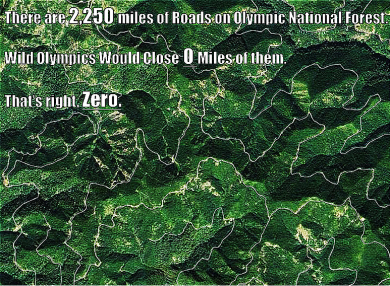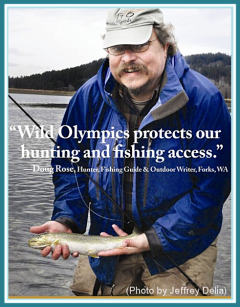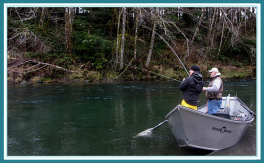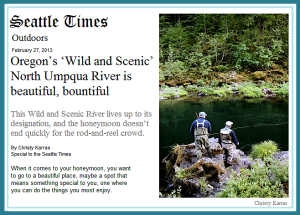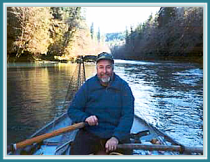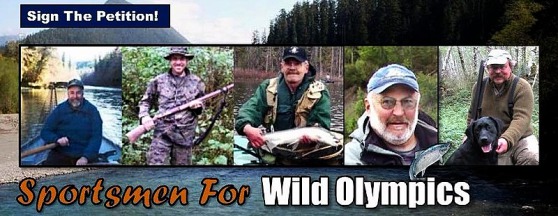
Wild Olympics Protects & Enhances Access Without Closing Roads
We are losing access to private lands where we used to hunt and fish. Gates are being closed, no-camping restrictions are being imposed, and no trespassing signs are going up, and some lands are being re-zoned and sold into private residential development.
Sportsmen pay a price for these activities in other ways. Developed land removes habitat for the deer, elk, and bear we hunt. Cover is gone. Food and water supplies are diminished. Carrying capacity pf the land is reduced. Runoff from new roads and pavement flows into our streams and harms fish habitat.
The roadless headwaters & free-flowing rivers on the publicly-owned lands of Olympic National Forest offer some of the last, best public backcountry hunting and fishing on the Peninsula. And yet these remote forests and rivers are being threatened by radical "Logging Without Laws" legislation advancing in congress, small hydro power developers, corporate polluters and their friends in congress trying to rollback safeguards on our public lands and open these sensitive spawning grounds to harmful hydro projects, and industrial clearcutting and roadbuilding once more.
Wild Olympics would permanently protect our remaining backcountry headwaters and free-flowing rivers on public land while protecting and enhancing public hunting & fishing access with new Wilderness and Wild & Scenic River designations.
Wilderness Expands High Buck Hunt Areas Wilderness designation for remote high country areas on Olympic National Forest could significantly expand the amount of lands available for the High Buck Hunt on the Olympic Peninsula*.
This would expand our hunting season and available lands for hunting deer. Wilderness boundaries have been carefully drawn so that existing road access plans on Olympic National Forest would remain unaffected and not a single mile of road would be closed by the proposal. If you can drive there now, nothing in the Wild Olympics plan would change that. (*Confirmed by WDFW)
Wild & Scenic Rivers Protect & Enhance Access Wild & Scenic River designation for stretches of rivers on federal & state land would permanently protect the Peninsula's rivers & streams against small-scale hydro power development, dams and other threats.
But many don't know that a Wild & Scenic designation also typically protects existing recreational use such as fishing and boating as one of the values for which the river is designated. The designation helps attract addtional funding for fish habitat restoration projects and access enhancement projects on the river.
For example, recreation access groups in WA recently worked with the US Forest Service to build access enhancement projects on two of the six Wild & Scenic rivers designated elsewhere in WA. More funding for restoration projects means more fish, & more fish means more fishing. And more recreation funding means more fishing.
This recent Seattle Times article about Oregon's Umpqua Wild & Scenic River illustrates how all types of recreational access is typically protected under Wild & Scenic designation, including fishing, driving and use by professional guides.
It also illustrates how the elevated protected status of the river can help transform the river into an economic hub for local communities and attract additional funds for restoration and recreation enhancement projects.
Roy Morris, Jr., Sportsmen for Wild Olympics co-founder and Owner/Head Guide for Able Guide Service out of Seiku, sums it up perfectly -
"Wild Olympics will not only protect water quality & fish, but enhance public access."
You can visit Roy's website to learn more about Roy and Able Guide Service by clicking on his photo to the right.
